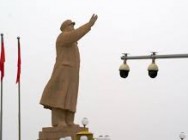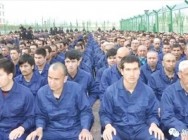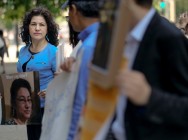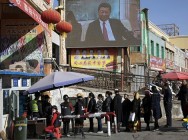Last Minute

- CHINA RELATIONSEAST TURKESTAN PROBLEM AND TURKEY
- FRONTLINE China Undercover
- Elimination of “Uyghur Counter-Revolutionary Officials” in Academic Fields—Exact Quotes Translated from a Mandarin Audio File
- In Push for Trade Deal, Trump Administration Shelves Sanctions Over China’s Crackdown on Uighurs
- Dalai Lama’s 60th Anniversary Symposium: İlshat Hassan speech in English and Chinese
- Uyghur Detainees from Xinjiang ‘Placed in Nearly Every Prison’ in Shandong Province
- Shahrezad Ghayrat, Unrepresented Women
- Uighur Americans Speak Against China’s Internment Camps. Their Relatives Disappear.
- Rozinisa: The true story of the Uyghur girls in the prison
- The Chinese Government Must Account for the Disappearance of the 10+ Million Uyghurs

-

CHINA RELATIONSEAST TURKESTAN PROBLEM AND TURKEY
-

FRONTLINE China Undercover
-

Elimination of “Uyghur Counter-Revolutionary Officials” in Academic Fields—Exact Quotes Translated from a Mandarin Audio File
-

In Push for Trade Deal, Trump Administration Shelves Sanctions Over China’s Crackdown on Uighurs
-

Dalai Lama’s 60th Anniversary Symposium: İlshat Hassan speech in English and Chinese
-

Uyghur Detainees from Xinjiang ‘Placed in Nearly Every Prison’ in Shandong Province
ailed Uyghur Scholar Tohti Officially Charged with Separatism
China’s jailed ethnic minority Uyghur scholar Ilham Tohti was officially charged in a Xinjiang court Wednesday with inciting separatism.
The announcement on his indictment at the Xinjiang regional capital’s Urumqi Intermediate People’s Court was made in a brief online statement by prosecutors, who had filed documents to back their case at the court without his or his lawyer’s presence.
The indictment came as dozens of Muslim Uyghurs, who call Xinjiang their homeland, were shot dead in fresh unrest in the region this week.
Tohti, who has flatly rejected the charges of separatism which can result in the death penalty, was dragged away from his home in the Chinese capital Beijing by dozens of police on Jan. 15, and formally arrested about a month later.
Human rights groups have said that Tohti’s detention was part of Beijing’s broad strategy to drown the voices of the Uyghurs, who say they have long suffered ethnic discrimination, oppressive religious controls, and continued poverty and joblessness.
Tohti’s lawyer Li Fangping said in an online statement that prosecutors had failed to inform him of the indictment as required by law and had not heeded his repeated requests for copies of any evidence to back the charges against Tohti.
He said he was “shocked” that the Urumqi procuratorate could ignore the basic right of defense.
Li and and another lawyer Wang Yu were allowed to meet Tohti in June for the first time since his detention.
Wang told reporters then that Tohti, a long-time advocate of Uyghur rights and outspoken critic of Chinese policies in the Xinjiang region, has continually rejected the charges of separatism leveled against him.
Tohti was sacked as economics professor by The Central University for Nationalities in Beijing after his detention, leaving his wife Guzelnur and their two young sons little to survive on as they struggle to cope with his disappearance.
His family has not been allowed to see him so far.
‘Shocking’
Guzelnur told RFA’s Uyghur Service on Wednesday that she learned about her husband’s indictment via the official media.
“What I felt on hearing the news is that the so called ‘separatism’ charges that the Xinjiang government has thrown on my husband are shocking,” she said.
“This is because my husband did not commit any of those crimes they are accusing my husband of. They slander my husband without any basis,” she said.
Guzulnur said it was “unacceptable” that the Urumqi prosecutor’s office did not inform her or his parents about the charges.
Wednesday’s indictment also drew concern from the United States.
“We are concerned about reports that China has indicted prominent economics professor Ilham Tohti,” deputy State Department spokesperson Marie Harf said.
“We call on Chinese authorities to release” Tohti and six students who had been held with him.
U.S.-based Human Rights Watch said in a statement that there was no publicly available evidence that Tohti engaged in any form of speech or behavior that could be construed by any objective standard as inciting violence or unlawful action.
“The Chinese government appears determined to silence Uyghurs like Tohti, who for years has tried to peacefully express Uyghurs’ legitimate grievances and advocate peaceful solutions,” said Sophie Richardson, China director at Human Rights Watch.
“Demonizing moderates like Tohti won’t bring peace to the region.”
‘Wrong signal’
She said that Beijing’s decision to indict Tohti “sends precisely the wrong signal to Uyghurs when tensions are at an all-time high.”
On Monday, Chinese police shot dead dozens of knife and axe-wielding Uyghurs who went on a rampage in Yarkand (in Chinese, Shache) county in Xinjiang’s Kashgar prefecture during the Eid al-Fitr festival marking the end of the Ramadan fasting month.
The Uyghurs were apparently angry over restrictions during the Islamic holy month of Ramadan and the police killing of a family of five, according to local officials.
The official Xinhua news agency said “police officers at the scene shot dead dozens of members of the mob” but did not provide precise casualty figures.
Dilxat Raxit, a spokesman for exile group World Uyghur Congress, said in an e-mail to Agence France-Presse that “nearly 100 people were killed and wounded during the clash,” citing local Uighur sources.
The figure could not be officially verified.
The Yarkand incident is one of the worst clashes in Xinjiang since bloody riots in the regional capital Urumqi in 2009 between Uyghurs and majority Han Chinese that left almost 200 people dead.
A Uyghur clerk working with the postal service in Yarkand county said the situation was “still chaotic” with curfew imposed and spot checks in some areas.
“The Internet has been cut off for the past three days, affecting the postal service too,” he told RFA.
Turghun Hidayet, a ruling Chinese Communist Party secretary in a village in Elishku township, where the riots began, said local officials were working round the clock to stabilize the situation.
A Chinese People’s Armed Police (PAP) personnel stationed in the nearby town of Hangdi said tensions were still high.
Reported by Mihray Abdilim, Shohret Hoshur and Eset Sulaiman for RFA’s Uyghur Service. Translated by Mamatjan Juma. Written in English by Parameswaran Ponnudurai.
http://www.rfa.org/english/news/uyghur/scholar-07302014194756.html
RELATED NEWS












